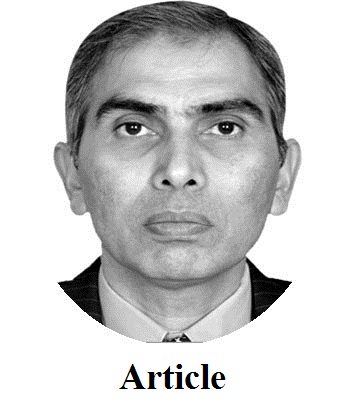Rizwan Ghani
OUR economy is in tatters. The international
reports and stock exchange numbers show
ing progress are at best illusions, which will never create jobs. As for economic restructuring to meeting IMF, it is not going to get the desired results. Argentina received $57bn bailout package but things have hardly improved there. The successive governments of Pakistan blame their predecessors for inflation, poverty, unemployment, lack of funds, mega loans and [their] interests and promise to improve economy and create jobs. Any country using IMF economy improvement template comprising mostly loans, tax lowering, FDI, government bonds, cutting subsidies and privatization have mostly struggled to revive economy, so it would be naïve on part of our leaders to expect different results unless they do what merits to be done. The current standoffs between government and opposition will only make things worse for public. Despite the size of economies of Europe and America, the average person is struggling. Reportedly, average American worker is being let down by politicians from both parties. The tax cut has shifted more of the total tax burden to workers. In 2018, the federal tax revenue was $1.7tn. Payroll taxes made up 7.8% of national income while corporate taxes made up just 0.9%, the biggest gap in nearly two decades. All told, taxes on workers were 35% of federal tax revenue in 2018; taxes on corporations, only 9%. Such policies have resulted in $22trillion debt on America and same is true for major economies of Europe.
Similarly, free markets are more of a myth. Internet service, cell phone plans and plane tickets are now cheaper in Europe and Asia than in the US. Monopolization of the US economy is now a common knowledge. It is opined that it cost the median American household about $300 a month and cheap imports deprive American workers of about $1.25tn of labour income every year. Same is true for Europe. A report blamed all private utility companies in the UK for overcharging and forcing customers to stay in predatory annual contracts while the government looked the other way. In the West, privatization was done to lower costs, cut red tape and let market control the prices. Report after report in the UK has found that private railway, telecommunication and transport companies have been profiteering at the cost of consumers, transferring infrastructure cost to taxpayers, failing to modernize (bullet trains, adopting renewable energy), and reducing ticket prices. The corrupt politician and private lobbyist nexus has been getting tax breaks, getting government funding and successfully blocking government plans to adopt renewable energy since 2010. Then western economies have been weakened mostly due to 2008 financial crisis, privatization, failed banking system, offshore tax havens, mega tax cuts for multinationals, fall in manufacturing, imports. These controversial policies have forced West to rely on predatory foreign investors to improve their economy, reduce poverty and unemployment. But overtime it has resulted in dilution of workers’ rights, ban on unions, lower or stagnant wages, long working hours and replacement of permanent jobs with contract jobs. For western public, it is a direct threat to their way of life. As a result, nationalism is on the rise. The support for populist leaders, anti-immigration policies, intolerance and rise of far right is high. The political parties and leaders use these sentiments to win elections mostly under the banner of nationalism. Once in power, they fail to offer real change in economy, jobs, wages, pension, housing, healthcare, transport or utility bills because of failing economic system and allied corruption. The election results in Hungary (anti-immigration), the UK (Brexit), India (minority rights, Kashmir) and the USA (America First) are cases in point.
Once in power, these populist leaders undermine Parliament, Judiciary, Establishment and Media. During the UK general election, incumbent PM successfully gagged media by threatening to withdraw [their] license to keep them from doing their job. After Brexit judgment against the PM, the Tory government is set to weaken judiciary under constitutional reforms. In 2012, House of Lords Constitution committee rejected proposals for US-style confirmation hearings to endorse the selection of Supreme Court Justices to ensure judges continue to have appropriate independence from Parliament. The judicial candidates should not be subject to US-style pre or post-appointment parliamentary hearings. Political considerations would undoubtedly influence both the parliamentarians chosen to sit on the panels and the questions put to candidates. In America, US judiciary is remade in Trump’s image which one critic called President’s dark legacy. Trump has approved 185 judges so far (133 district court judges out of 677 total, 50 appeals court judges out of 179 total, and two US Supreme Court Justices out of nine total). Obama could manage 55 judges in his eight-year tenure. America is deeply divided on critical issues because judiciary is politicized. The impeachment of third US President could well be just a piece of paper if Republican picked Chief Justice so decides just like one of his predecessors he could simply ‘attend’ the impeachment hearing and leave to keep judiciary ‘apolitical’? The fate of western economies, judiciary, media shows that grass is hardly green on the other side. So our government, opposition and institutions should forget their difference to overcome huge challenge together to serve the public. IK should meet leaders of opposition parties including Bilawal to get the country united and running. Government should leave accountability to judiciary and let the law take its own course.
—The writer is senior political analyst based in Islamabad.










